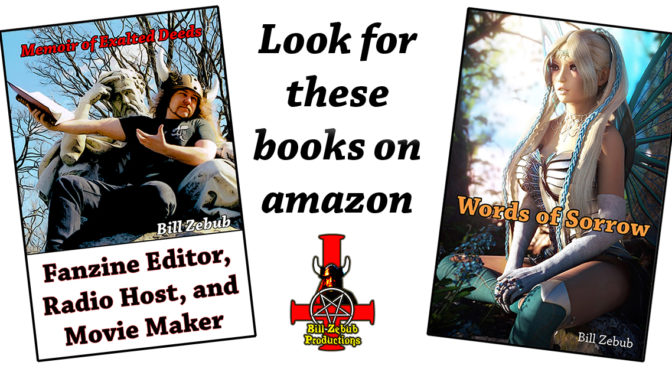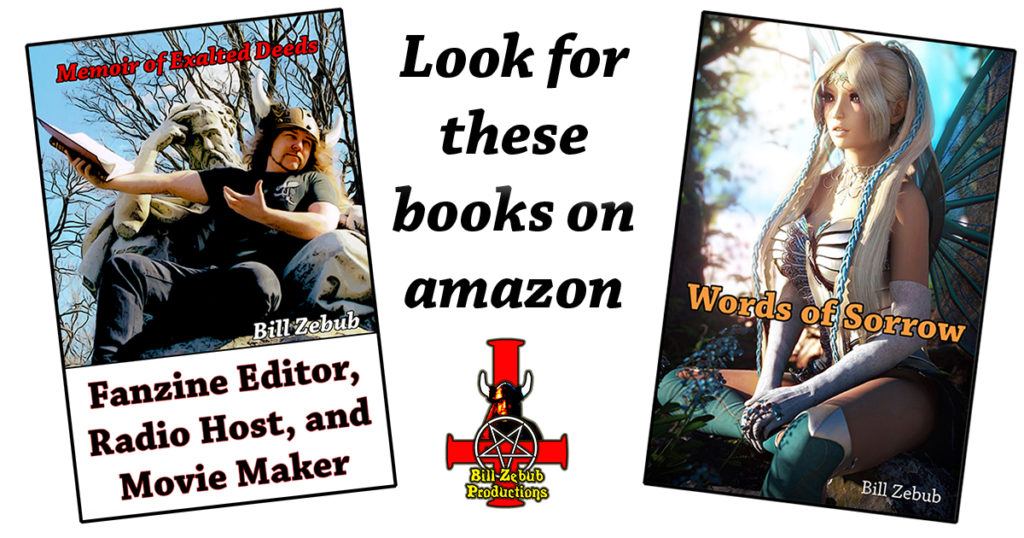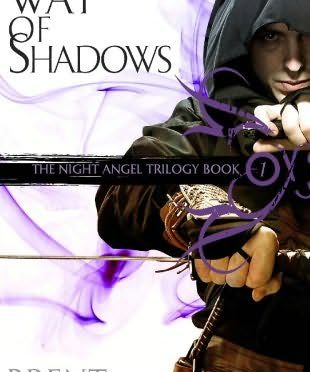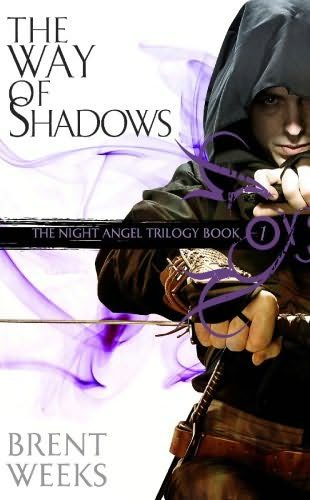Why have your books become out of print? You have no idea how deep was my sense of loss when I could not track down the people who had borrowed your books from me.
Thanks for liking my work so much. Writers always love to hear their work praised. There appear to be two reasons why my books are currently out of print. First, there were changes of personnel at NAL (U.S. publisher). Everyone who had any interest in my work left the company, and the one editor who was in a position to buy new fantasy work, did not want the third novel in the “Sorcerer¹s Son”/”Crystal Palace”series. When that happened, I worked very hard to get the rights to the first two books reverted to me so that I could resell them along with the third book. Although I found editors with at least one other company who did want to publish all three books, the sales people at that company said I had been out of the marketplace too long for the books to be viable. That is, I wasn¹t prolific enough. Several editors have said I should write some new books, unconnected to the old ones, and after they were published, the old books would look more attractive. So that¹s what I’m doing now – working on a new book. We¹ll see how that goes.
Would you agree that many people have a gift for writing, but very few of them actually dare to try making something of it?
Actually, I disagree. It¹s my observation that very few people have a gift for writing. I say this as a teacher who has seen a self-selected sample of people who want to be writers -in my classes – and the majority of them think they can write but they can’t. Of course, there are really two elements to writing – the ability to tell a gripping story, and the ability to write in readable prose. Some people have one ability but not the other. Relatively few have both. And the days of editors who would fix your prose if you were only a good storyteller are gone. My job as a teacher, I think, is to help my students develop both skills. As for daring to make something of it – writing well is hard work, and writing fiction is not particularly high-paying. A lot of students discover these things and go on to become middle-managers at hotel chains.
Do you make a skeletal outline first and then flesh it out, chapter by chapter?
Yes, I am an outliner. I think a 20 page outline is about right for a novel. Then I mark the chapter breaks and, starting at Chapter One, write them in sequence. I usually come up with other details as I¹m writing, and I jot them down on scraps of paper, which I tack up on my bulletin board. As I reach the points where they fit in the story, I write them into it and throw the scraps of paper away. There have usually been a lot of scraps of paper in my wastebasket by the time I’m done with a novel.
I would like to know what you consciously do to make the descriptions so vivid in my mind.
I consciously tell myself to slow down, to avoid rushing the story. When I was a teenager, I could tell almost any story in 4 pages, most of it dialog, and I¹d write it in a single sitting. It was only when I forced myself to slow down that I started selling my stories. I close my eyes and see the scene and the people I’m writing about. I try to hear the dry leaves crackling underfoot, I try to feel soft fur of an animal under my hands. I bring my own physical experiences to writing, whether that be horseback riding, swimming, running, fencing, or just climbing a flight of stairs. And I try to find some of myself in every character, so that I feel what that character is feeling – hate, anger, despair, whatever. Of course I want reader to care about and identify with my main characters, and I want them to dislike my villains. I usually make my villains paranoid or extremely self-centered, which can certainly result in heartlessness and cruelty, which are evil enough for most stories.
In “The Crystal Palace” you put my imagination in a different reality. It is as if I actually have the memory of existing in the dimensions you described. What made you dream up something so abstract?
I thought about the demon worlds of Water, Fire, and Ice for quite a long time before writing about them. As I thought about the demons themselves, trying to imagine what their personalities would be like, and what their lives would be. Weightlessness was an important aspect of the demon worlds, and I did as much research on it as I could. I also thought a lot about swimming – a kind of weightlessness- and I’ve
often had dreams about flying, so I used memories of those sensations, too. I daydreamed a lot of thought experiments about the demon worlds. I wanted them to be as different from the real, familiar world as they could be. I thought of them as surreal, like landscapes painted by Salvador Dali. Indeed, it was a challenge to write that material down in a vivid way, but I had a good time doing it.
You teach science fiction writing at Columbia College in Chicago. I wonder if you have the time to enjoy the works of writers such as Terry Goodkind.
Not as much time as I’d like. People keep recommending books to me, and there’s a stack on the dresser in my bedroom. I haven¹t read Goodkind yet.
When you wrote the six novels of the past, how much time did you spend writing each day? I am wondering if you received an advance that would allow you to do nothing else if you wished.
On those various novels, my writing time varied wildly from an hour or two a day to eight or nine. Sometimes I was writing full time, sometimes I was doing other things. The advances were never enough to live on, though sales of foreign rights sometimes added a nice cushion. Like many
writers, I’ve done a lot of things to make money.
What is your opinion about the conflict of good versus evil, or light against darkness in fantasy? Is it amateurish to create characters that are all good or all bad?
It may be amateurish, but the real problem is that it’s very easy. As a writer, you don¹t have to think much about your villain’s personality if he’s simply the incarnation of Evil. Sauron had stopped being a human being, and he is, of course, a model for many writers. I prefer more human villains, who have human motivations. Perhaps they are not mentally balanced, or they have horrible experiences in their backgrounds. Perhaps they are self-centered and greedy. There are plenty of motivations available,other than simple pure evil.
Are there some formulae in writing that cannot be avoided?
Various writers have suggested that there are a limited number of plot formulas. Marion Zimmer Bradley said there were nine plots. Robert Heinlein suggested some even smaller number. But these are all vague things, like boy meets girl/ boy loses girl/ boy gets girl. Or, as Marion put one of hers,“There’s a hell of a good universe next door.” On that level, the word “formula” doesn’t mean much. I don¹t really believe in formulas, and I certainly don’t use any on a conscious level. As for variance in structure… let’s face it, readers expect certain things in fiction. They expect to be able to understand what¹s going on. They expect the story to move from someplace to someplace else, either on a personal level or a broad, sweeping level. They expect at least one main character to have interesting and significant experiences. If fiction doesn’t deliver some of this stuff, people won’t read it. So there is a practical limit to variance in structure, based on the audience. In my own writing, I have a broad structure in mind… a route that the story will take from beginning to end, which calls for character growth and change as well as change in the situation – things are different at the end than they were at the beginning). The route has to FEEL right to me, and I judge its rightness by all the standards that I have internalized through decades of reading.
It is often thrilling to read stories that feature demons. But I think that “evil” is just a human attribute. In a physical reality, communication would perfect. So there could be no deception. There would be no ownership of anything, so there could be nothing to steal. You could not be killed or destroyed. You could not be made to suffer pain. There would be no competition for a mate because there is no mating. There is no competition for shelter because there is no weather.
You have some very interesting ideas about how nonphysical reality would work, but I disagree with all of them. Why should communication be perfect? Communication arises from the wills of individuals and is colored by their abilities and intentions. Lying seems an obvious attribute of intelligent creatures, whether they are physical or nonphysical. Ownership does not require physical objects… songs can be owned, not to mention the creatures themselves. Ownership depends, again, on the attitudes and desires of the individuals and of their society. Ownership is a concept we humans have invented, and we apply it where and to what we wish. Why should thoughts have the power to manifest themselves as temporary reality? In short, what you have here is your own set of parameters for a nonphysical reality, and if you were to write a story using them, that would be fine. But that doesn’t mean they are the ONLY parameters for such a story, and it doesn’t mean that other writers must use them. Every writer is entitled to make up one or more universes with rules that suit the writer. Of course, they should be internally consistent, but lots of combinations of elements can be mutually consistent. As for the otherworldly beings, my attitude toward them is an extension of my attitude toward villains. I envisioned demons as a race of intelligent, nonhuman creatures, not just as disembodied forces conjured up when sorcerers needed them. With that as my premise, it followed logically that they would have their own world, their own culture, their own attitudes. These are not HUMAN attitudes because the demons have their own value system and their own interests. I like the demons a great deal, partly because I see them as aliens -that’s the science fiction writer in me, and partly because they are struggling against the injustice of slavery. This struggle makes them sympathetic characters, even though they are all a little odd by human standards. I also had a lot of fun developing their individual personalities. They’re not evil, but sometimes they are forced to do evil by their masters. And sometimes they do very selfish things that could hurt humans because, to most of them, humans are not very important.
You mentioned that you had flying dreams. Those have had been my favorite type of dream. When I was in high school I had a dream in which I became completely aware that I was dreaming. I knew that I could make anything happen, and I chose to fly, although it was not so easy to shake the beliefs that kept me grounded. It was pure will that enabled me to soar. The reason why I love flying in dreams so much is because it is an experience. Whether it happens in a dream or in real life, the result is the same. All I have after it is done is the memory. But while I am flying I relish each moment. I would like to know if you have also been able to wake up in your dreams. A few years after I had the first conscious experience, I learned that the phenomenon was called “lucid dreaming” and I have learned to induce them, as I’m sure, anyone can.
I’ve had the experience of lucid dreaming a few times. For me, it has always been the result of wanting to dream about certain
things before I went to sleep. The time it worked best resulted in a series of dreams over a period of weeks that were repeats or extensions of the same scenario. Eventually, I used that series of dreams as the basis of a novelette (“Nightlife”, published in The Magazine of Fantasy and
Science Fiction back in 1982 and nominated for the Hugo Award). But I haven’t done this, or really wanted to do it, for a long time.
Did you ever meet with rejection that almost ended your desire to write?
Once, when Lester Del Rey urged me to write a sequel to “Sorceror’s Son”, approved the outline, and then rejected the finished book. For a long time after that, I felt sick to my stomach just looking at my keyboard. But I came out of it eventually.






